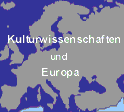
or the Reality of the Virtuality
 |
or the Reality of the Virtuality Motto |
|
The motto of the exhibition, "Cultural Studies - the productive force of the 21st century", cannot pass without comment in an age when the crisis of the humanities is omnipresent in the media and cultural studies are often seen only as a discipline rather than as a scientific direction of inquiry.
The motto was developed from the viewpoint that taking cultural factors into account is important in every aspect of life. This begins with the most important precondition for human productivity - peace. (Without Cultural Studies one cannot place the unifying power of culture at the centre of developments.) Cultural conditions must be considered in relation to the production of goods. There are many examples inUNESCO documents of proven technologies and social models failing in spite of sometimes substantial funding, because proper account was not taken of the cultural circumstances in the individual countries.
However the motto goes beyond this aspect. It is not limited to the already extant. 'Cultural studies as a productive force' also asserts that in the light of new social conditions in Europe (i.e. the information society, the service society) the significance to society of cultural studies is undergoing a fundamental revolution. Their emphasis will move away from legitimation, education, preservation and auxiliary activities. They can be seen far more as the motor of future developments.
The precondition for this is to succeed in compelling recognition of the fact that people are central to production, and that production occurs for people. Account must be taken of the great variety of human activities, which will repeatedly and very quickly change, especially in the 21st century.
The assumption that a higher value will be placed on people as a result of new forms of production is not realistic. It has been acknowledged already for decades that in both larger and smaller sectors of the economy, the ever increasing shift away from industrial occupations in Europe is connected to forms of work demanding greater self-reliance. This is true both for production itself and for management. Increasingly, what matters most is information, the ability to evaluate information, and to make autonomous decisions. The prerequisites must be created through development, education, information structures, joint decision-making structures and communal structures.
Everywhere, where modern production conditions are not linked
to modern social structures (eg. in highly industrialised Japan), a society
which may be successful today could fail. Violent conflicts could play
an ever greater role.
A society interested in effecting foreseeable transformation
on the basis of the most informed decision-making possible, and seeking
to establish those decisions through factually based discussion,
will recognise the importance of employing cultural studies -
speaking here, of course, of cultural studies which have adjusted
themselves to new forms, circumstances and topics of research. Equally,
the relation between cultural studies and the public needs to be fundamentally
changed.
|
|
|
|
|
|
|
|
|